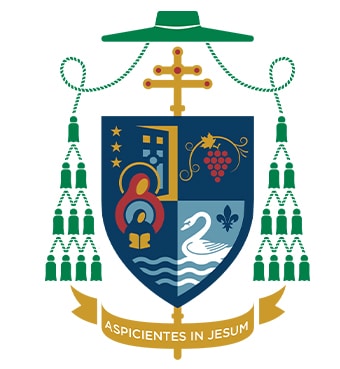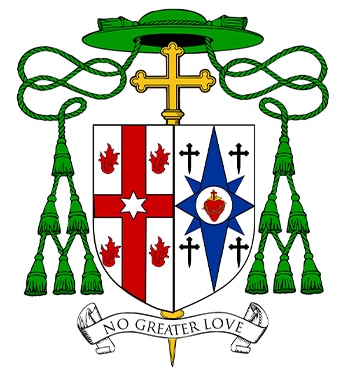Ypsilanti: Christian, Islamic speakers clash at symposium
August 16, 2013
By Joseph Yelick
For Heritage Media
It was an all-day raucous affair at the EMU Student center on Saturday (Aug. 10) as Christians and Muslims came together to participate in spirited debates about the Islamic religion.
Held as a “No holds barred” discussion by Al Kresta, CEO of Ave Maria Communications, the three featured debates of the day left a lasting impression on the audience and speakers themselves.
“These Muslim leaders insist the United States is at War with Islam despite President Obama saying numerous times that this is not true,” said Robert Spencer, who is the director of Jihad Watch, and the author of 12 books including two New York Times bestsellers.
“War is only permitted as self-defense…When threatened with personal harm,” said Shadid Lewis, in response to the many objections Spencer highlighted against Islam being a religion of peace.
“The Quran clearly endorses making peace deals and peace treaties with nonbelievers,” said Lewis, the USA Regional Director of the Muslim Debate Initiative. He has studied and completed courses in sciences of Quran, Islamic Family Law, and Studies of Understanding Hadith at the American Open Islamic University of Fairfax, Va.
Spencer delivered one of his prototypical performances. Even the Pro-Christian Kresta, who was moderating the event, had difficulty wrangling in Spencer’s vigorous anti-Islamic rants.
In one instance Kresta had Spencer’s and Lewis’s mics turned off to prevent the boisterous, incoherent back and forth dialogue to cease.
Spencer was unwavering in his stance that Islam is not a religion of peace. He touted numerous Islamic scholars and attacks of terror to support his point.
“Twenty-one thousand terrorist have acted in the name of Islam,” Spencer said to reporters after the debate with Lewis.
“Does Islam support religious liberty?” was the first debate of the day and featured less fireworks then the debates with Spencer yet still produced several quality points.
“People often misunderstand values and the religion of a different society… Nitpicking the negative stories,” said Mustafa Akyol, a columnist for two Turkish newspapers and a contributor to many American news publications.
Akyol described a story where in Turkey, the internal media took the story of a Florida man (Terry Jones) burning the Quran and misinterpreted his actions by saying that all Americans were burning Qurans. This was a popular story in the Turkish media that was used to depict Americans as being religiously intolerant.
“Media does not always make misunderstanding disappear,” Akyol said.
Debating Akyol was Richard Thompson, the President and Chief Counsel of the Thomas Moore Law Center.
“We are concerned that religious ideology will destroy the United States,” said Thompson, “Let’s not try to say we are going to agree on Islam vs. Christianity.”
Lewis and Akyol both shared the notion that the conflicts between Islamist and the United States are not the result of religion but because of political reasons. Noting U.S. foreign policy and the words “collateral damage,” for when an airstrike kills civilians in Muslim countries, as the political reasons for why some Muslims want to attack America.
“It all sounds so neat and obvious when we hear it coming from speakers like Mr. Lewis and Mr. Akyol,” said Spencer in retaliation to the counterpoints by his debate opponent.
In the lively debate on “Is Islam a religion of Peace?” Lewis and Spencer went back and forth on their interpretations of Quran or noted different scholar’s interpretations of the Quran.
“The Quran is to be used to interpret itself when scholars differ,” said Lewis, “Clearly peaceful in junctures and peaceful verses are in the Quran.”
“They (Muslims) use peace to gather strength to fight against their enemies more effectively,” said Spencer, “Nonbelief in Islam is seen as aggressiveness to Muslims.”
Robert Muise, co-president and senior counsel for the American Freedom Law Center shared his thoughts on the debate, “I think with any debate, like anything, it is about understanding…, both sides understating the other side.”
The one-day symposium brought Muslim and Christian speakers to a forum where both sides could voice their opinions on the debate topics.
“Open and robust debate…It is giving a chance to hear a point and counter point on the two religions,” said Muise, “The purpose is to shed a greater light on the issues.”
In the third and last debate of the day, Spencer and Akyol tackled the issue of “Does Islam Produce Democracy?”
“There are violent attacks every day in the name of Islam,” said Spencer, who went on to provide accounts of non-democratic policies practiced by Muslims.
“Islamic ideas are not always great but they can change. Radical Islam is an idea, a battle of [Islamic] ideologies,” said Akyol, “America is fighting with al-Qaida. In Turkey, we fight them; they bomb us, as well. The war on al-Qaida can’t be a war on Islam.”
In the end, the symposium was about using a back and forth dialogue where neither side sought winning or losing, and in the center ring stood two religions debating Islamic issues relevant to Christian-Americans in the year 2013.
Source: http://www.heritage.com/articles/2013/08/16/ypsilanti_courier/news/doc520d13c48a5db096122045.txt








